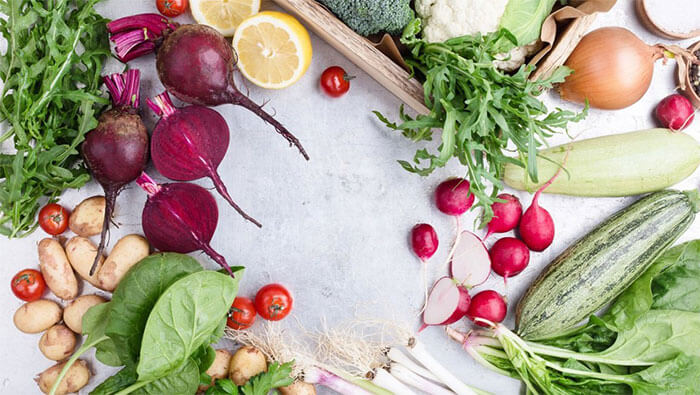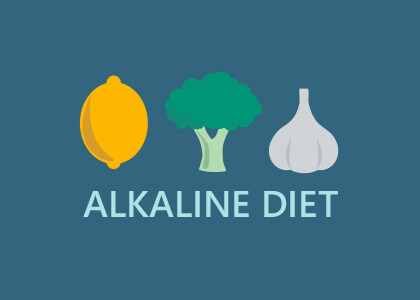Acids and bases might sound like something from far back in your memory, like middle school science class, but the concept is still very applicable to every aspect of life today.
The foods and beverages you consume daily have a very big effect on your oral health and overall health, for better or worse. You can protect and support your health by eating the right foods. We know this isn’t news to anyone, but it’s much easier said than done, right?
Edmonds dentist, Dr. Kitts, explains more below about how an alkaline diet can benefit your oral health and overall health.
Key Takeaways
- Alkaline diet includes mostly foods with a pH above 7, which can benefit oral health and overall health.
- Acidic foods can leech calcium from bones, including teeth, leading to tooth sensitivity, cavities, and tooth loss.
Fresh vegetables, fruits, nuts, seeds, beans, lentils, and oils are alkaline foods that can support oral health. - Citrus fruits should be consumed in moderation and rinsing mouth with water after consuming them can minimize damage to teeth.
- Avoiding acidic foods like grains, sugar, dairy, fish, meats, processed foods, saturated fat, and vegetable oil can help protect oral health.

What is an alkaline diet?
Everything around us is made of chemicals that are either some level of acidic or basic (alkaline). Chemicals are numbered on the pH scale from 0-6 as acidic, 7 as neutral, and 8-14 as alkaline, and more people are talking these days about the negative effects of diets high in acidity. A minimally acidic, or alkaline, diet will contain mostly foods with a pH above 7.
Research shows that some chronic diseases (such as type 2 diabetes and heart disease) and even cancer are linked to eating a highly acidic diet. An acidic environment is a breeding ground for bacteria, disease, and decay, and is the primary culprit behind chronic inflammation. Chronic inflammation is one of the main contributing factors to many different health problems.
Eating an alkaline diet can counter these effects. Your body actually has great natural processes for balancing your internal pH, but you can relieve stress on these systems by eating less acidic and more alkaline foods. An alkaline diet aims to support your internal organ systems and the overall function of your body.
Benefits of an alkaline diet for oral health
Too much acid in the body can leech calcium, which is bad for your bones. This includes your teeth since teeth are bones! Eating an alkaline diet and lowering your acid intake can help protect your teeth and oral health.
Of course, acidic foods can be a problem for your teeth even before you fully digest them. Too much acid wears down your enamel (the hard, white, outside layer of each tooth). This is bad for tooth sensitivity, cavities, and the life expectancy of each tooth. Some studies found that the acid in dark soda (phosphoric acid) is particularly bad for your teeth.
Unfortunately, the standard American diet is high in processed, acidic foods like sugar and dairy, so it takes some effort to lower your consumption of them. But don’t worry; eating more alkaline foods is easier than you might think – and actually quite enjoyable!
Alkaline diet foods
Alkaline foods tend to be raw and unprocessed. Think of fresh leafy greens, salads, fruits, vegetables, nuts, and seeds. The more colorful your diet, the better off you will be.
The most alkaline foods include:
- Fresh vegetables – broccoli, cabbage, celery, cucumber, endive, garlic, grasses, kale, parsley, sprouts, spinach
- Fresh fruits – avocado, coconut, grapefruit, lemon, lime, pomegranate, rhubarb, tomato
- Beans, lentils, quinoa
- Oils and fats – flax, hemp, avocado, olive, evening primrose, borage
- Nuts and seeds – almonds, buckwheat groats, caraway seeds, cumin seeds, fennel seeds, hemp seeds, sesame seeds
- Hummus, tahini
Acidic foods you should avoid include:
- Grains
- Sugar
- Dairy
- Fish
- Meats
- Processed foods
- Saturated fat
- Vegetable oil
While citrus fruits are highly acidic in their natural state and can do damage to your tooth enamel, many of them actually become alkaline once digested and can provide a number of health benefits. Citrus fruits should be consumed in moderation, and you should always rinse your mouth with water after enjoying them to minimize damage to your teeth.
Whenever you try new foods, it can take a while to learn how you like them prepared. Don’t be discouraged, but look for recipes and spices (other than salt) to enhance your alkaline diet.
If you have more questions about how your diet affects your oral health, Soundview Family Dental would love to empower you with information and support. Make an appointment to see us soon!
The content on this blog is not intended to be a substitute for professional medical advice, diagnosis, or treatment. Always seek the advice of qualified health providers with questions you may have regarding medical conditions.
Sources:


